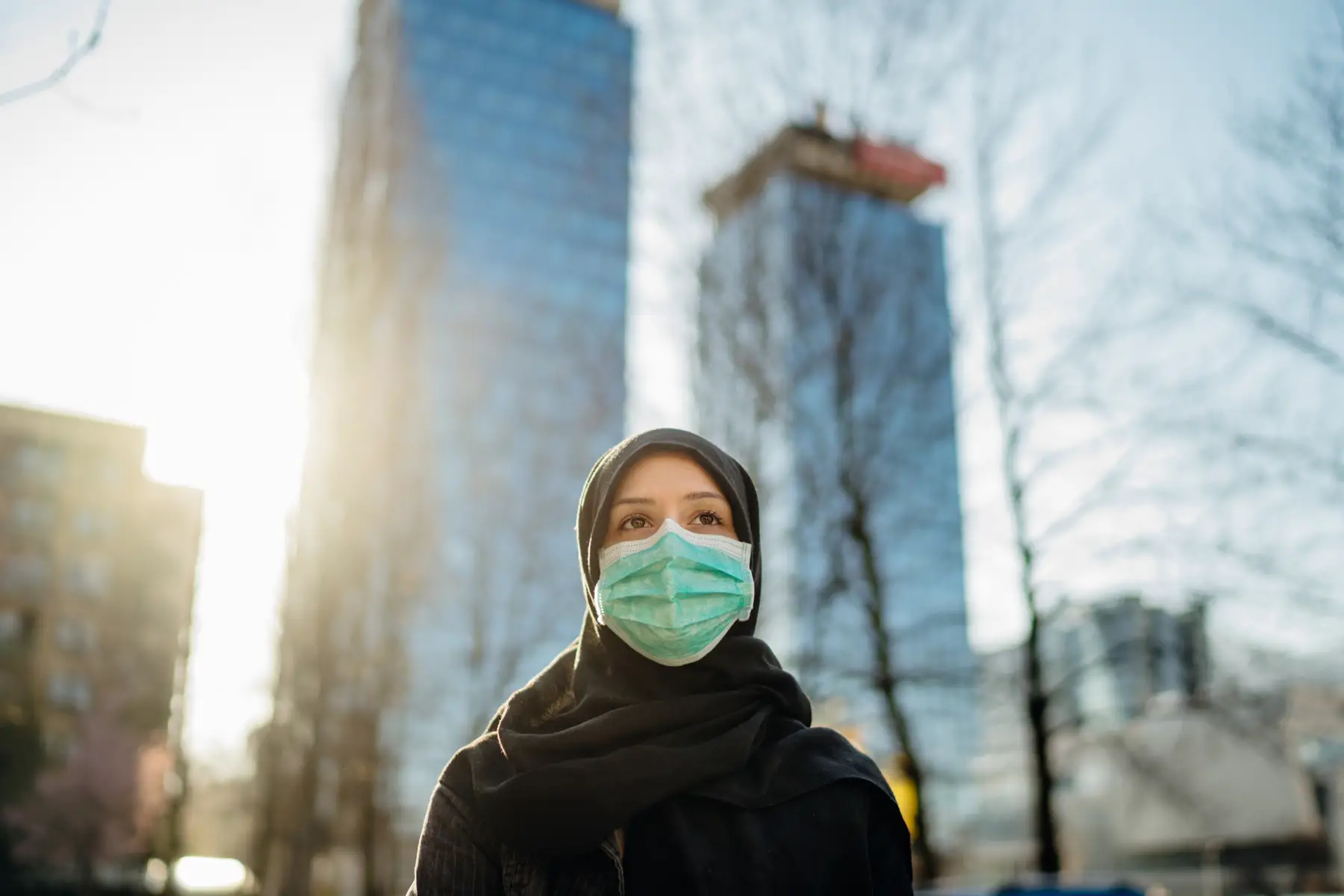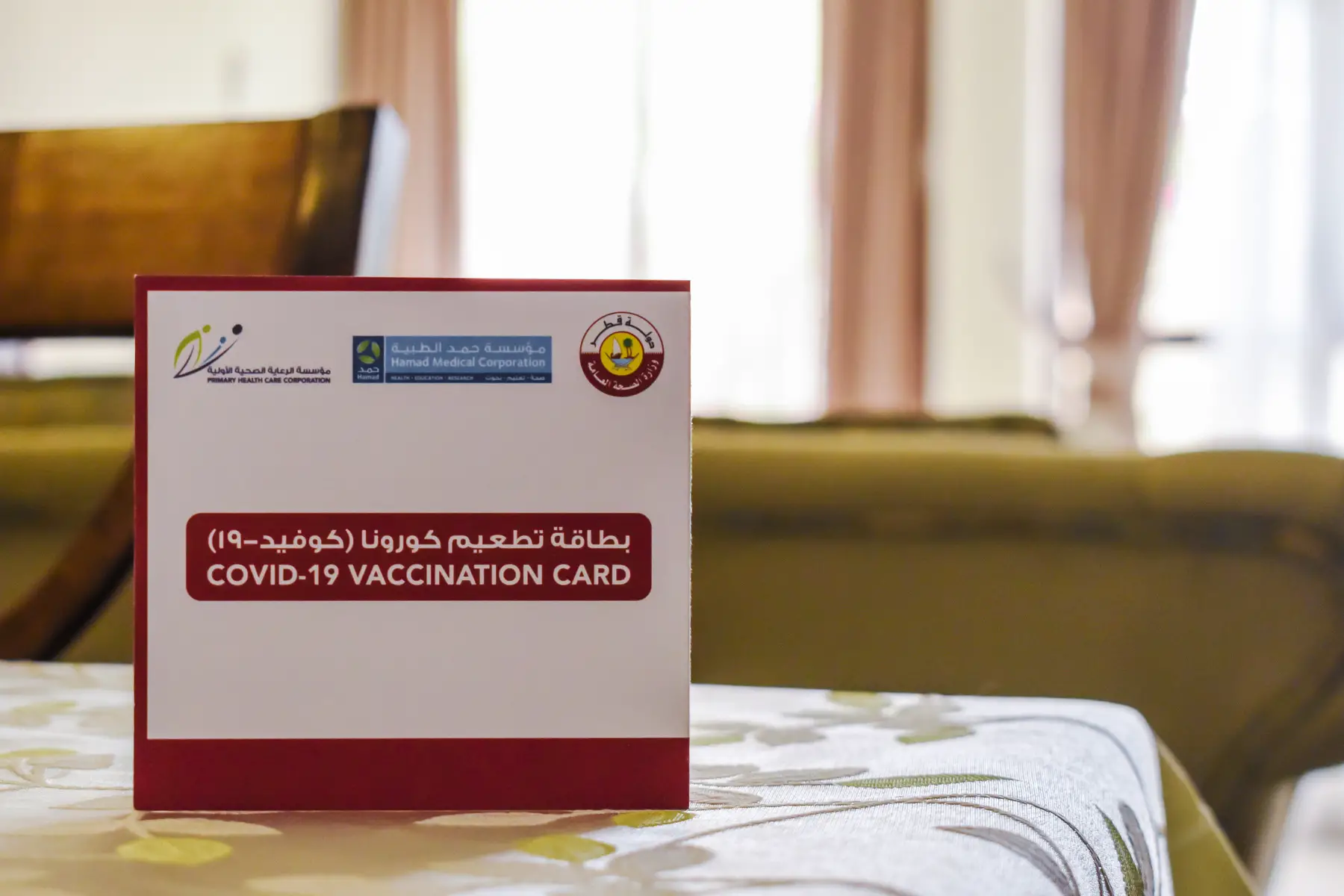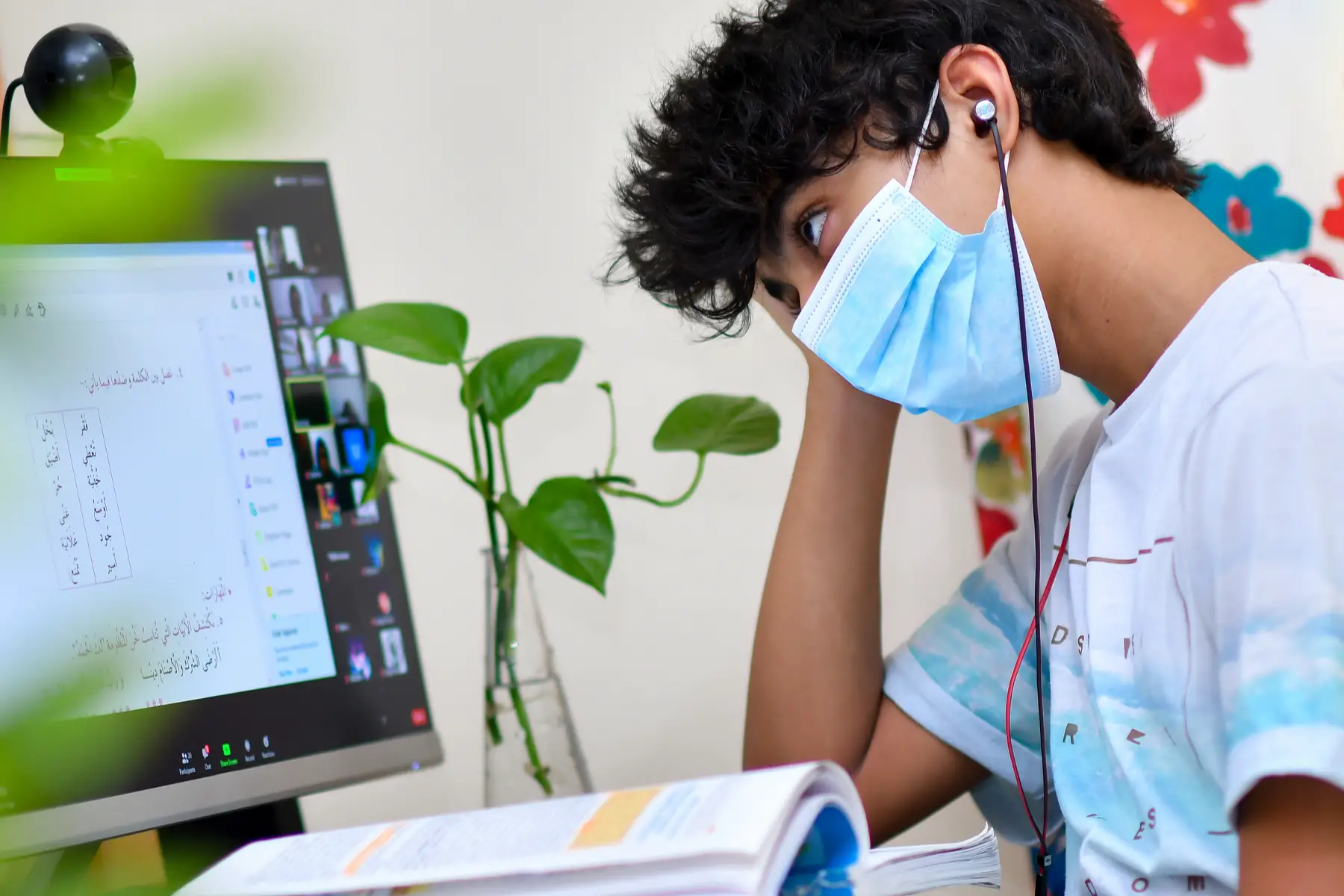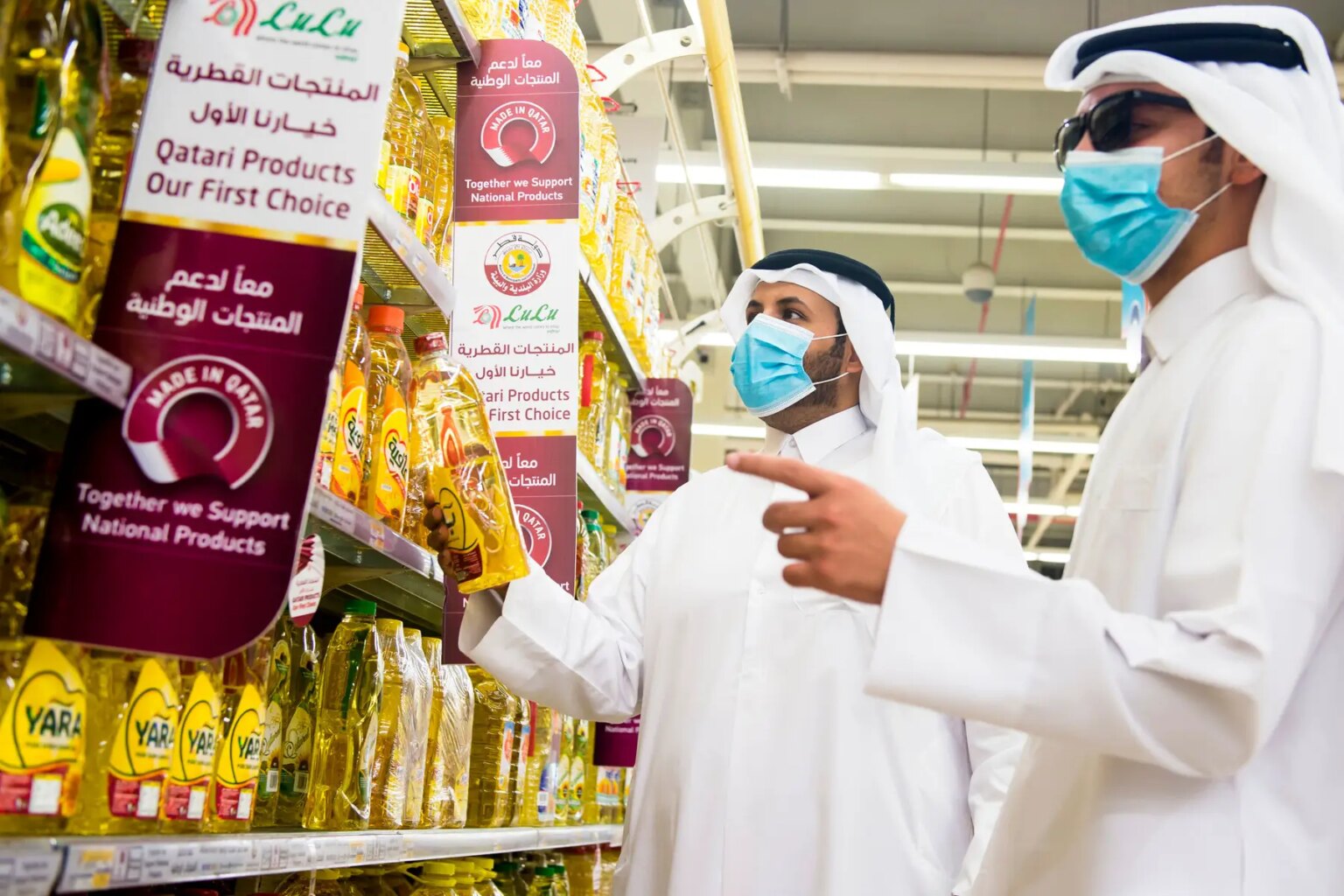Qatar’s initial response to the coronavirus pandemic was to close its borders and schools, implement a mask mandate, and put a partial curfew in place. Two years on and these policies and a successful vaccine campaign have led to the majority of Qatar’s population being vaccinated.
To help you find up-to-date information about Qatar’s response to COVID-19, including everything from testing regulations and tracing apps to small business support, this article includes the following:
- COVID-19 in Qatar
- COVID-19 rules and measures in Qatar
- Qatar COVID-19 apps
- COVID-19 testing in Qatar
- COVID-19 vaccinations in Qatar
- International travel during COVID-19 in Qatar
- Long COVID support in Qatar
- COVID-19 support for businesses in Qatar
- Education about COVID-19 in Qatar
- COVID-19 support for vulnerable people in Qatar
Cigna Global
Want access to the best private medical services in Qatar? Speak to the healthcare professionals at Cigna Global today and find a policy that’s right for you. Take advantage of their global network of doctors, specialists, therapists and more with coverage tailor-made for you and your family. If you’re starting a new life in Qatar, get peace of mind with Cigna Global.
COVID-19 in Qatar
The coronavirus pandemic has been an incredibly challenging time. For expats, this has brought even more uncertainty as they have been separated from their home countries and loved ones. As a foreigner, it can also be difficult to access crucial and transparent information about COVID-19 regulations.

Within Qatar, the Ministry of Public Health manages the nation’s response to the coronavirus. Therefore, you can find the most up-to-date information about health and safety guidelines on its website. For updates on infection rates, you can also review its Twitter page.
COVID-19 rules and measures in Qatar
Qatar announced its first COVID-19 case on February 29, 2020, and, in the following months, the government worked to slow the spread of the virus through education campaigns and limiting social contact. The country closed its borders for over a year, stopped in-person schooling, halted mass gatherings, and enforced a partial curfew. Masks and social distancing also became mandatory, and treatment for coronavirus was free.
Qatar also converted five of its hospitals into COVID-19 facilities, which allowed its other hospitals to be able to keep serving patients normally. Thanks to this strategy, the country never ran out of hospital beds during the pandemic. Because the peninsula hosts many migrant workers who remain unconnected to health services, Qatar also deployed mobile testing units to target particularly vulnerable populations. The government set up quarantine and isolation facilities, with clinicians on staff, to separate and care for the sick.
Due to these policies, Qatar’s COVID-19 infection rates have been much lower than many of its Gulf neighbors. In fact, as of December 2021, the country had fewer than 1,000 deaths due to the virus. However, despite these successes, Qatar is considered to have a high level of COVID-19, so travelers should take extra precautions if they are visiting the peninsula.
As the pandemic slowed, Qatar began loosening its mask restrictions and allowed full or reduced capacity events to proceed. For the most recent data on health guidelines and social gatherings, you can visit the Ministry of Public Health website.
Qatar COVID-19 apps
Qatar’s response to COVID-19 utilizes one main app, called the Ehteraz app. This serves many purposes but is primarily a contact tracing app. Ehteraz will notify you if you have been within six feet of an infected person. The app also shows your infection and vaccine status. Officials use the app to disseminate important health and social announcements.
Furthermore, the app requires permanent location access to perform accurate contact tracing. Just keep in mind that installing Ehteraz on your phone is mandatory, and failing to do so could result in prison time or fines of up to QR200,000.
COVID-19 testing in Qatar
The PCR test
The PCR test is the most common and trusted in Qatar’s COVID landscape. Trained clinicians perform the test via a nasal swab and results may be available within 24 to 72 hours. However, be sure to allow for more processing time during peak or holiday times. PCR tests are widely available throughout Qatar, and if you would like to go through a public clinic, this website can help you find the nearest one.

Many private clinics, such as Sidra and Aster, provide COVID-19 testing, so be sure to ask around in your expat circles. Costs could range from QR160 to QR660 depending on availability.
Rapid antigen test
The antigen test is a convenient tool to help screen for some cases of COVID-19. This test is conducted via a nasal swab and can produce results within 15 minutes. The quick results are helpful because if someone tests positive, they must then take a PCR test and will likely be asked to isolate. The Qatari government has capped the cost of antigen tests at QR50, although there has been some recent price gouging. For a list of Ministry-approved sites for antigen testing, check out this link.
If you test positive for COVID-19 in Qatar
If you take a COVID-19 test in Qatar, you will likely access your test results through the Ehteraz app. Once you receive a positive result, you should call 16000 to receive guidance on where and how long you should quarantine. Some people will be directed to quarantine in staffed clinical facilities, However, others can quarantine at home if they have mild or moderate symptoms. The Ministry provides updated guidelines for home quarantining.
Be sure to monitor your symptoms, and if you have any questions or concerns, feel free to call the Home Isolation Hotline on 4025 1666.
COVID-19 antibody tests in Qatar
Antibody tests can determine whether someone has previously had COVID-19. The test requires a small blood sample. You can go through a public clinic to get a test. The Qatari government has also approved certain private health centers to carry out antibody tests, but again, you can ask around in your expat circles to find out more.
COVID-19 vaccinations in Qatar
Vaccines are free for residents and easily available throughout Qatar, However, currently, only Moderna and Pfizer/BioNTech have received state approval. Qatar’s COVID-19 vaccine campaign has been aggressive. In fact, by January 2022, the state had fully vaccinated over 86% of the population. Recently, though, the state announced that only vaccinated people will be allowed into malls, restaurants, and cafés.

Vaccines are provided in clinics and hospitals throughout Qatar, and you can book your vaccine or booster appointment via the Ministry of Public Health website.
You can find more information about vaccinations in Qatar in our guide.
International travel during COVID-19 in Qatar
Qatar reopened its borders on July 12, 2021. Its policy on accepting travelers depends on whether you are a citizen of Qatar or a GCC country, your vaccination status, and where you’re traveling from. The government has divided countries into Green List, Red List, and Exceptionally Red List locations. Most travelers will require at least a negative PCR test from 72 hours before arrival in Qatar.
Some travelers may also require some or all of the following:
- A test upon arrival
- Home or hotel quarantine
- PCR test from day six of quarantine
Vaccinated travelers will also need proof of vaccination. All travelers staying in Qatar must have a cell phone with a working SIM card in order to download the Ehteraz app.

To find out what your updated travel requirements are, based on your specific situation, you can check out this government link.
Long COVID support in Qatar
Long COVID is a condition wherein a person who contracted coronavirus continues to experience symptoms of the virus beyond the normal incubation period. These symptoms could include everything from fatigue and difficulty concentrating to heart palpitations and chest pain.
Research shows that long COVID can affect between 5 to 10% of people who were never hospitalized with the virus. For those who were hospitalized, however, the number is closer to 80%.
Although Qatar doesn’t track its long COVID cases, the state is enhancing its research and physiotherapy resources. If you believe that you are experiencing long COVID, be sure to check in with your medical providers who can direct you to the most appropriate help. And, if you are looking for virtual support, be sure to check out Survivor Corps.
COVID-19 support for businesses in Qatar
Qatar’s response to COVID-19 included several regulations to soften the pandemic’s impact on the business sector. For instance, in March 2020, the government announced a QR75 billion stimulus package aimed at protecting small businesses and other hard-hit sectors. The government also lowered deposit and interest rates, and postponed loan repayments for certain sectors.
Moreover, it launched a new platform, the Qatar Mobile Payment System, to allow immediate and safe electronic payments throughout Qatar. This digital adaptivity then created opportunities for growth for e-commerce, fin-tech, and venture capital investors.
Looking forward to 2022, the upcoming FIFA World Cup, as well as Qatar’s continued investment in liquefied natural gas (LNG), are likely to boost GDP. In fact, the Qatari economy is forecasted to grow at pre-pandemic levels in 2022 and actually outperform its neighbors.
Education about COVID-19 in Qatar
Qatar closed all schools and universities on 10 March 2020, moving everyone to virtual learning. To support this, the government launched a teaching platform called Mzeed and set up two educational channels to provide educational support via television.

As the pandemic eased, some students returned to school in late August 2021, through a blended learning system. Then, in early October 2021, students returned at 100% capacity, with either a vaccine or weekly testing for eligible staff and students.
Unfortunately, in January 2022, with the intensifying spread of COVID-19, Qatar announced a one-week return to distance learning. To find the most up-to-date information, check out the Ministry of Education’s website or the Ministry of Health’s education guidelines.
COVID-19 support for vulnerable people in Qatar
The Qatari government recognized that COVID-19 is a disease that poses a particular threat to those who are older, ill, or otherwise vulnerable. As a result, its early response involved targeting high-risk groups for increased testing. This early detection method contributed to Qatar’s low mortality rate. Additionally, the Ministry of Health published a wealth of resources that were specifically tailored for supporting the elderly, at-risk groups, and children as they navigate the pandemic.






